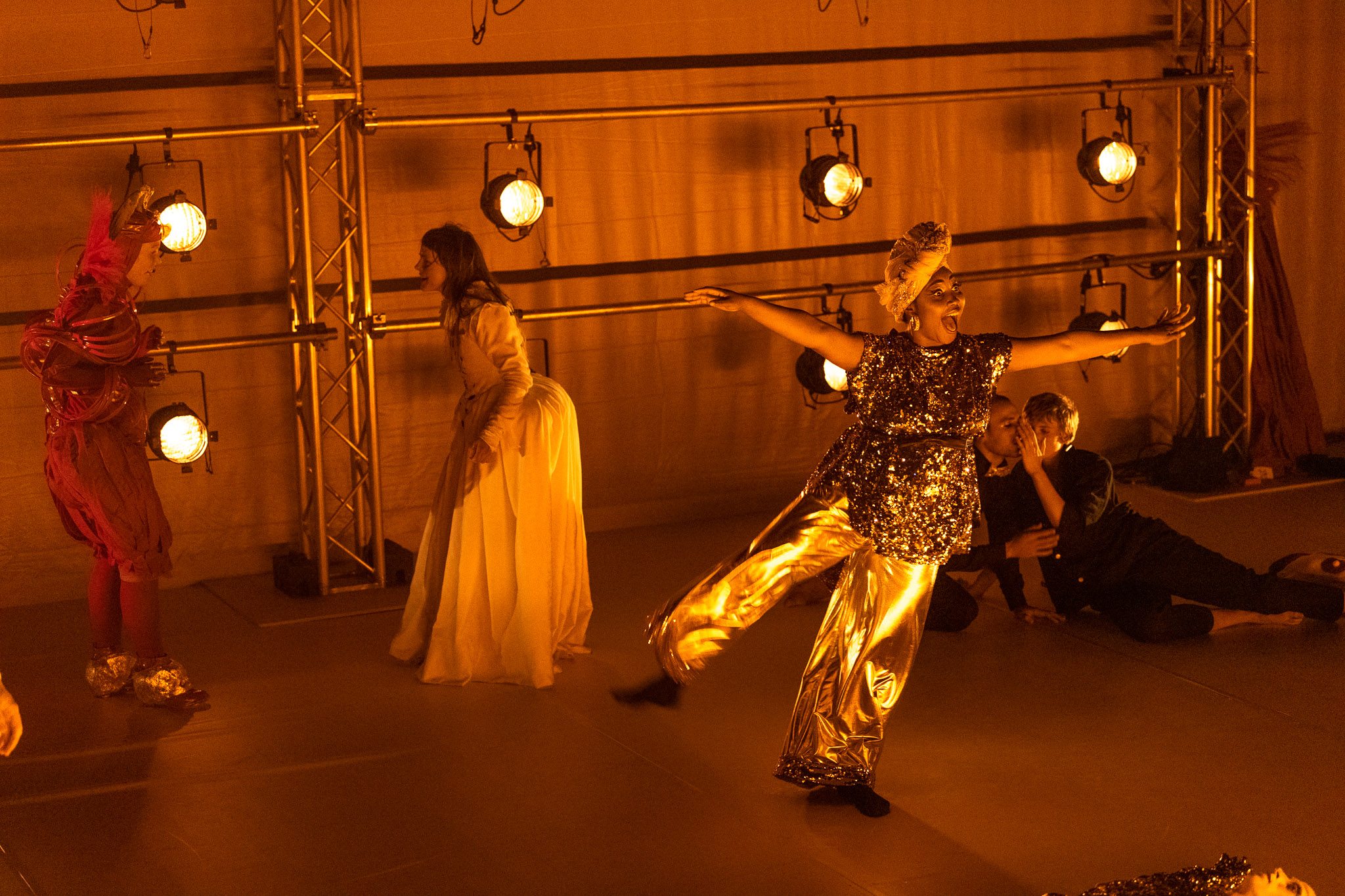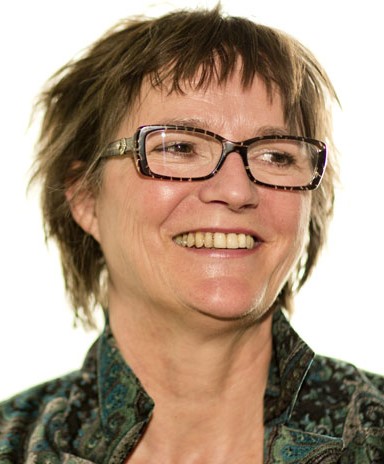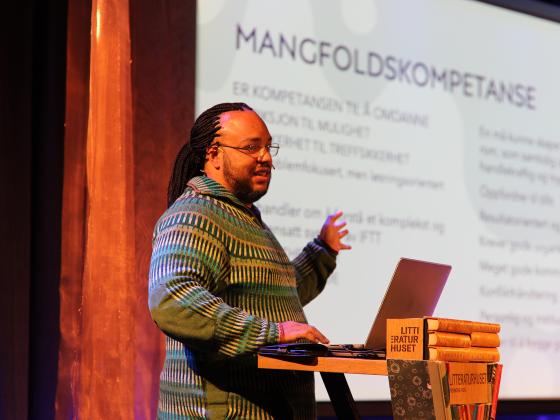New plan against racism is in the works
The Norwegian Theatre Academy at Østfold University College is now writing its first plan against racism. "Although this is new in Norway, I hope that the rest of the university college and more academic institutions will follow suit," says Thomas Prestø.
"It's not enough to talk about racism and create good attitudes, we must also offer good tools," says Thomas Prestø, research fellow at the Norwegian Theatre Academy at Østfold University College and head of the group that is now developing a non-discriminatory platform.
"The platform is not meant to influence people’s attitudes, but is a tool that will primarily provide instructions and guidance."
A risk management tool
The group Prestø leads consists of the heads of the scenography and master's programmes, safety representatives and administrative staff. The students are also involved and will provide input.
"It's important to me that we create an active, living document. The result should be a kind of risk management tool which is continuously assessed and adjusted as new challenges arise, or if societal changes indicate such a need," he says.
The plan is due to be completed in June. Its format will differ from that of other action plans and guides at Østfold University College. In addition, it is specifically adapted to the organisation and can be an inspiration to both theatres and other educational institutions, according to Prestø.
The platform will be a guide that sets out a process, methodology and concrete tools that can be taken out and implemented when someone is subjected to racism.
"Guides tend to be written in nice words and phrases, but they are too often left to collect dust and are little used."
"Why is this happening now, and why at Østfold University College?"
"This is an international university college, and we have wanted to develop the skills to meet this challenge for a long time. My own inspiration comes from the fact that I have worked with racism issues throughout my career. I’m also working on a PhD on the topic of decolonial performance practice."
Thomas Prestø says that his commitment is also rooted in his background. With African American roots, his knowledge of life as a minority is based on experience. His CV speaks of commitment in several arenas, including a central role in African Youth in Norway, the contemporary dance stage Dansens Hus and as a consultant for several large companies.
The Norwegian Theatre Academy is a separate entity at Østfold University College, and is placed on the same level as the faculties in the organisational chart.
The Norwegian Theatre Academy plans to finalise its first contingency plan against racism in June.
Thomas Prestø, research fellow at the academy, is the man behind the plan.
The working group that has developed what they call a non-discriminatory platform consists of seven people, comprising managers, safety representatives, administrative staff and researchers. Student representatives will also provide input to the plan.
Want to create security
The guide against racism is for both students and staff at the Norwegian Theatre Academy, but it can also be used in situations where an audience or external actors are involved.
"When situations arise, the content of the platform must tell us what is to be done, how, and who should take action. It should therefore be possible to handle everything from bad meetings between students to discriminatory language in a professional manner," says Prestø.
"Can you tell us more about why such a guide is necessary?"
"We need to raise awareness all the time. In addition to having good tools, we also want to address personal attitudes and build competence around how we interact with each other," says Prestø, adding:
"Diversity management is a skill, not an attitude. Not everyone is able to tell the difference."
"How were you met when you launched the idea of a guide for the academy?"
"When I made the proposal, I was met with great enthusiasm and immediate action. Several people pointed to observations and mistakes they themselves had made, and some said they had long wanted to formalise the challenge of racism."
Racism creates insecurity, which is why one of the goals of the platform is to build safe and predictable frameworks, he says.

Racism as a problem
Prestø points out that, perhaps now more than ever, we must take this challenge seriously.
"I have worked professionally with racism for 25 years, and my experience is that there is little improvement. The group of people who do not belong to the ethnic majority is becoming critically large, and if these people are not included, they will disappear from Norway. "
"Many from my generation in African Youth in Norway, who are very resourceful people with master’s and doctoral degrees, have disappeared. We are still experiencing a brain drain from Norway," he believes.
Prestø is not aware of any figures on brain drain from Norway, and he mentions both a lack of systems for following up what people work with and where they end up and dual citizenship among the factors that make this issue extra complex.
"What I'm trying to say is that this development is very unfortunate."
"How would you describe the culture and problems with racism at the Norwegian Theatre Academy?"
"Researchers are recruited both nationally and internationally, and all teaching is in English. I dare say that we are one of the more diverse environments in Norwegian academia in terms of representation of ethnicity, gender and functional ability."
"Why do you nevertheless need a contingency plan?"
"Many processes in theatre and art are personal and thereby invasive, and you very often have to dig into your own feelings. Having a platform for non-discriminatory practices will safeguard and support a good learning environment," Prestø believes.

The management is on board
Anne Berit Løland, head of section at the Norwegian Theatre Academy, is pleased that the contingency plan is starting to take shape.
"We're looking forward to this. The platform will help us develop inclusive and non-discriminatory practices, which is important for the working and learning environment. We believe this can be a resource for development, both on an individual and organisational level."
Løland points out that they also see the work as a source of artistic project development and a good starting point for developing artistic work.
"Acting and scenography are collective art forms, they don’t exist as an art form without relating to the audience.”
"How have you dealt with racism in the past?"
"The academy has an international student environment, and we recruit students from all over the world for our four study programmes. We intend to use expertise to address diversity issues. That is the basis for much of our motivation for developing the contingency plan," says Løland.
"Do you think the rest of the university college will follow your example and develop their own tailored platforms?"
"It's not really about copying us. The academy is part of the university college, and based on what I have said, we can perhaps help inspire the organisation’s further work on developing good working and learning environments,” she says.
Great interest in work against racism
Although work on a platform against racism is only under way at the Norwegian Theatre Academy, several of the other departments have also shown their interest.
"Although this is new in Norway and at Østfold University College, I find that people are very interested in our work and in what we’re developing. I hope and believe that the rest of the university college will also engage actively in this. And, of course, I hope that more academic institutions will follow suit," says Thomas Prestø.
"Are there any countries that have systems we can learn from?"
"In the United States, Canada and South Africa, research institutions have come a long way in their work with guidelines against racism, and although it may be mostly motivated by a fear of legal consequences, they report positive experiences. "
"Are there figures available on racism in academia before compared to now?"
"There are no good figures on racism in academia, nor on racism in society in general. Individual cases are not a good indication of the occurrence of racism in general. The person subjected to it is left to handle it themselves. There is also limited research on racism in Norway, and most of it focuses on sport,” he said.
In line with, among other things, requirements set out in the Equality and Anti-Discrimination Act and expectations from the Research Council of Norway, most universities, university colleges and research institutes have action plans for equality.
None of the institutions explicitly mention racism in the title of their action plan, but write about plans for diversity, gender balance or similar.
NTNU is an example of an institution that addresses racism. The university’s Development plan for gender equality and diversity states that NTNU will actively combat racism, and one of the measures is: "NTNU will develop awareness-raising training on these topics for staff and students to prevent discrimination, sexual harassment, racism and harassment."



